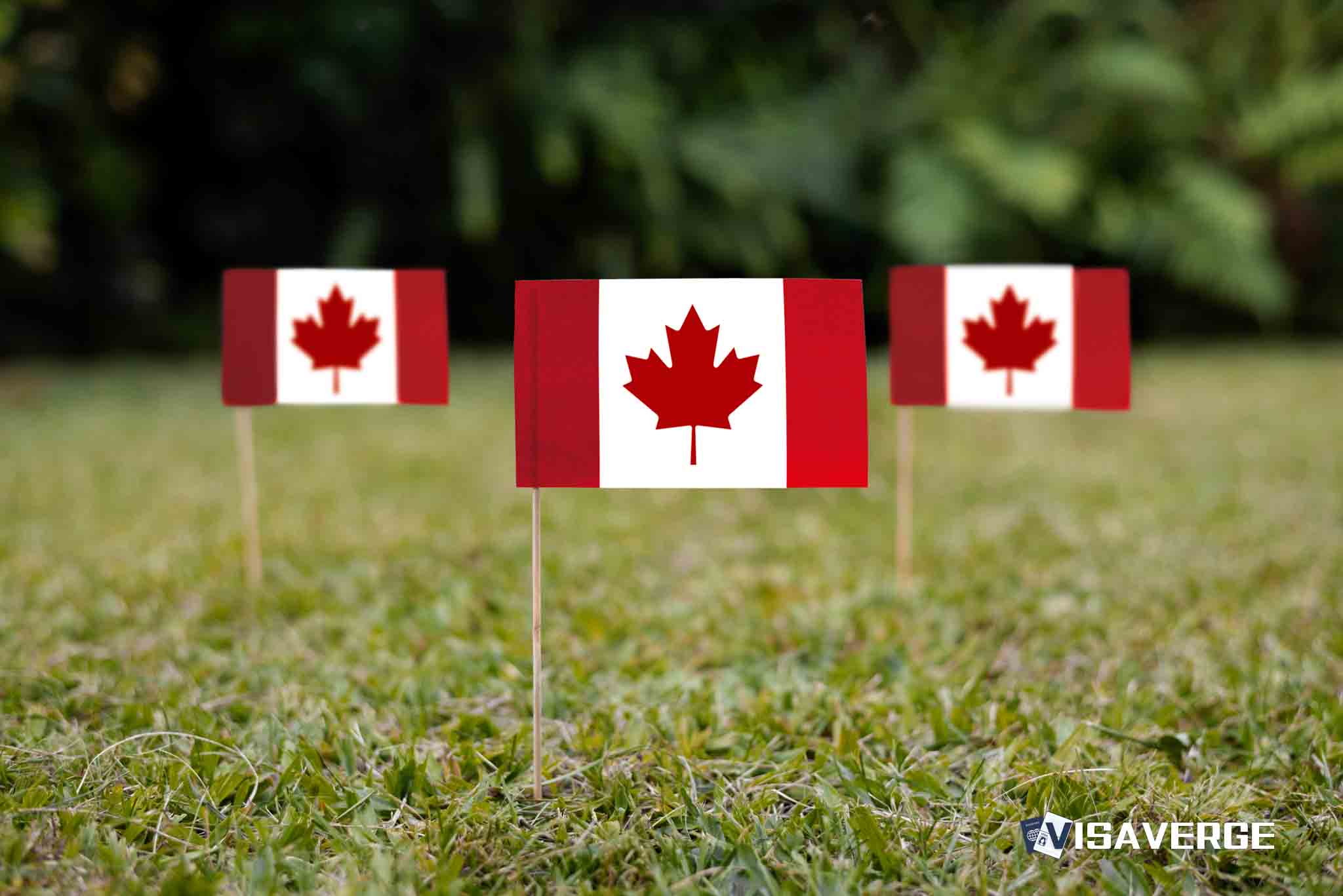(CANADA) Immigration, Refugees and Citizenship Canada (IRCC) is consulting on a proposed new Express Entry category for 2026 that would focus on “leadership and innovation,” aiming at senior managers, scientists and researchers, and select military recruits from allied countries. The consultation window runs from August 6 to September 3, 2025 (ET), and no final decision has been made as of August 12, 2025. While the idea remains a proposal, it signals a reset of category-based selection priorities next year, set against lower national permanent resident targets and a stronger focus on economic outcomes.
Under the proposal, IRCC would add a “Leadership & Innovation” category-based stream that identifies three occupational clusters:

- Executive-level senior managers
- Innovation-focused scientists and researchers
- Specialized military recruits who could bring hard-to-find defense skills into the Canadian Armed Forces
IRCC is also asking whether to continue prioritizing French-speaking candidates outside Quebec and whether to give more weight to in-Canada work experience, especially in regulated professions.
Officials say existing category-based draws—first launched in 2023—are expected to continue in 2026. These include:
- French-language proficiency
- Healthcare
- STEM
- Trades
- Agriculture/agri-food
- Education
IRCC may refine eligibility within these categories, including longer work-experience requirements and added priority for Canadian work experience in regulated roles.
National targets and policy context
The consultation comes as Canada keeps permanent resident intake at lower levels to ease pressure on housing and services: 395,000 admissions in 2025, 380,000 in 2026, and 365,000 in 2027, according to the current Immigration Levels Plan. Economic programs remain the largest share, with a growing portion of transitions to permanent residence for people already in Canada, such as temporary foreign workers and recent graduates.
IRCC has also kept a strong focus on Francophone immigration outside Quebec. Recent planning points to targets of about 29,325 French-speaking admissions in 2025 and 31,350 in both 2026 and 2027 across programs. Category-based Express Entry draws for French speakers have typically required at least CLB 7 in all abilities, and IRCC is asking whether to maintain this emphasis in 2026.
The proposed shift to “leadership and innovation” reflects a broader strategy to go beyond filling long-term labor shortages. IRCC is testing a model that selects candidates who can drive productivity, research, commercialization, and organizational impact. That means:
- Senior managers whose decisions shape large budgets and teams
- Scientists whose work leads to patents or new products
- Allied-country military professionals who bring rare training and security-ready skills
For transparency and updates on category-based selection, IRCC maintains an official page on Express Entry categories and draws. Readers can review the framework and past categories at the Government of Canada’s site: https://www.canada.ca/en/immigration-refugees-citizenship/services/immigrate-canada/express-entry/category-based-selection.html.
Policy direction and consultation process
Category-based selection under Express Entry began in 2023 to better match immigration with sector needs and to boost French-language admissions outside Quebec. Through annual consultation cycles, IRCC updates categories and eligibility.
The 2024–2025 period also marked a rebalancing of overall intake to manage population pressures while keeping the economic stream central. According to analysis by VisaVerge.com, the proposed category for leadership and innovation would be a step toward proactive selection for global competitiveness, layered on top of ongoing priorities like healthcare, STEM, and skilled trades.
Key points:
- Lower national targets heighten competition for Invitations to Apply (ITAs).
- If finalized, draws in 2026 could favor candidates who show strong leadership records or innovation outcomes, even if their Comprehensive Ranking System (CRS) scores are not the very highest.
- General and program-specific draws can still occur alongside category-based rounds; applicants should continue efforts to improve CRS scores.
Important: Keep improving your CRS and documentation. Category-based draws may value demonstrated impact over raw CRS rank alone, but standard routes remain active.
Impact on applicants
For each target group, below are likely implications and preparatory steps.
Senior managers and executives
- A dedicated stream could reward leadership scope—such as company size, budget oversight, staff count, and strategic results—even if CRS is mid-range.
- Specific National Occupational Classification (NOC) codes for 2026 are not yet published.
- Applicants should collect detailed employer letters showing duties and measurable impact.
Scientists and researchers
- A pathway keyed to innovation and R&D may evaluate degrees, research roles, and outputs such as patents, publications, grants, or commercialization.
- Final criteria are pending; keep evidence organized (e.g., copies of patents, publication lists, grant award letters).
Specialized military recruits from allied countries
- This is a new concept within Express Entry and would require coordination with the Canadian Armed Forces for screening and admissibility.
- Expect emphasis on security-clearance-ready profiles and specialized training.
- More detail will follow if the category is adopted.
French-speaking candidates
- Continued priority outside Quebec is likely, with historical thresholds at CLB 7 in all abilities.
- Keep language test results current and consider retesting to improve scores.
Applicants already in Canada (PGWPs, work permits)
- IRCC is consulting on whether to prioritize people already in Canada. If adopted, this could benefit temporary residents with Canadian credentials or regulated roles.
- Strengthen your case by documenting Canadian experience, licensing steps, and employer references linked to NOC duties.
Practical preparation checklist
- Build a clear record of leadership or innovation work:
- Team size, budgets, strategic projects, patents, peer-reviewed papers, grants, measurable outcomes.
- Ensure job titles match duties under the correct NOC:
- Employer letters should detail responsibilities, tools used, and results.
- Keep your Express Entry profile current:
- Improve CRS via language re-testing, updated Education Credential Assessments, and adding work history.
- Monitor IRCC announcements:
- Ministerial instructions usually list final categories, qualifying occupations, language thresholds, and extra requirements.
Timeline and what to watch
- Aug 6–Sep 3, 2025: IRCC is collecting public input on 2026 category-based priorities, including the “Leadership & Innovation” concept.
- Late 2025 (anticipated): IRCC typically publishes the next year’s categories after consultations. As of August 12, 2025, no final decision has been released.
- 2026: If adopted, draws in the new category would likely run alongside French, healthcare, STEM, trades, agriculture/agri-food, and education categories.
Potential refinements for 2026 include longer work-experience thresholds and added weight for Canadian experience in regulated jobs. That could narrow eligibility for some applicants while creating clearer paths for others—especially those with proven records inside Canada or with strong innovation outcomes.
Real-world examples:
– A biotech researcher with patents and grant-backed projects may find a more direct route if IRCC rewards concrete research outputs.
– An operations vice-president who led a major digital transformation or merger may qualify if leadership scope is central.
– A signals specialist from an allied military could see a defined path if the Canadian Armed Forces and IRCC align on standards and screening.
Final considerations and stakeholder input
With 380,000 permanent resident spots in 2026, category-based draws become a sharper tool to meet national goals while managing intake. Applicants should assume higher competition and prepare stronger documentation that demonstrates real-world impact, not just job titles.
Stakeholders—employers, universities, research institutes, and community groups—can influence the outcome by sending feedback during the consultation period. Input on occupations, language levels, and experience thresholds will shape the final design.
For now, IRCC’s message is clear: the 2026 Express Entry plan is still in development, but a reset is on the table with leadership and innovation at its core. Keep profiles up to date, gather proof of outcomes, and monitor the final category list expected in late 2025.
This Article in a Nutshell
IRCC’s Aug 6–Sep 3, 2025 consultation proposes a 2026 Express Entry stream for leadership and innovation, prioritizing senior managers, scientists, and specialist allied military recruits, signaling a focus on measurable impact, Canadian experience, and category-based selection amid lower immigration targets and heightened competition for ITAs.







